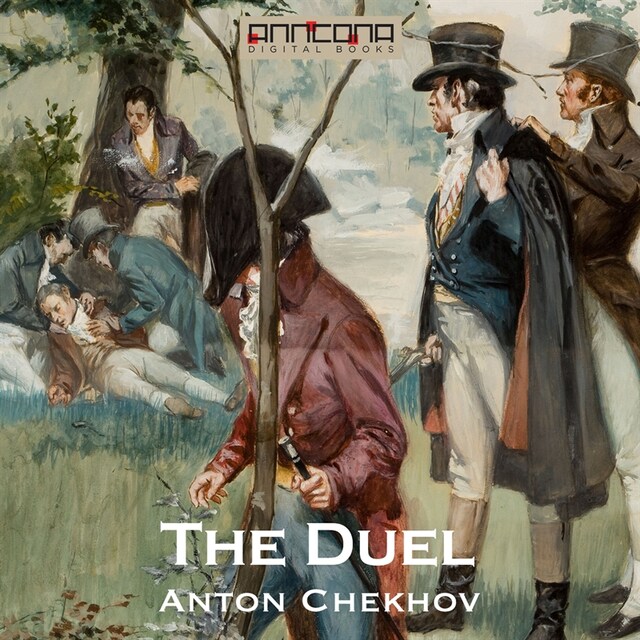The Duel
Om bogen
The Duel by Anton Chekhov first published in 1891. This English translation was first published in 1916.
The plot centres around Laevsky, who is living in a small seaside town in the Caucasus after running away with another man's wife, Nadyezhda Fyodorovna, amid dreams of starting a new life. The dreams have come to nothing as Laevsky idles away his life drinking and playing cards, and Nadyezhda begins to have other affairs.
Laevsky's scheme to run away again, this time without his mistress, brings him into conflict with the rationalist Von Koren, who believes in Darwinian principles of natural selection and extinction of the weak and useless. Matters come to a head when an outburst from Laevsky leads to a duel. Von Koren is determined to teach Laevksy a lesson.
Duels having been exploited as plot twists throughout the writings of Tolstoy, Turgenev, and Dostoyevsky, the challenge for Chekhov is to make it work one more time in 1891, at a time when duelling had nearly died out in both society and literature. The result is a richly layered, utterly original, philosophically and psychologically ambiguous story of human love and friendship.
Total Running Time (TRT): 3 hours, 55 min. Reading by Expatriate.
Anton Pavlovich Chekhov (1860-1904) was a Russian physician, dramatist and author who is considered to be among the greatest writers of short stories in history. His career as a dramatist produced four classics and his best short stories are held in high esteem by writers and critics.
Chekhov had at first written stories only for financial gain, but as his artistic ambition grew, he made formal innovations which have influenced the evolution of the modern short story. His originality consists in an early use of the stream-of-consciousness technique, later adopted by James Joyce and other modernists, combined with a disavowal of the moral finality of traditional story structure. He made no apologies for the difficulties this posed to readers, insisting that the role of an artist was to ask questions, not to answer them.
Sprog:
Engelsk
Bogen The Duel og over 1 million andre bøger
fra 6,99 kr./måned
Fyld dit liv med historier!




